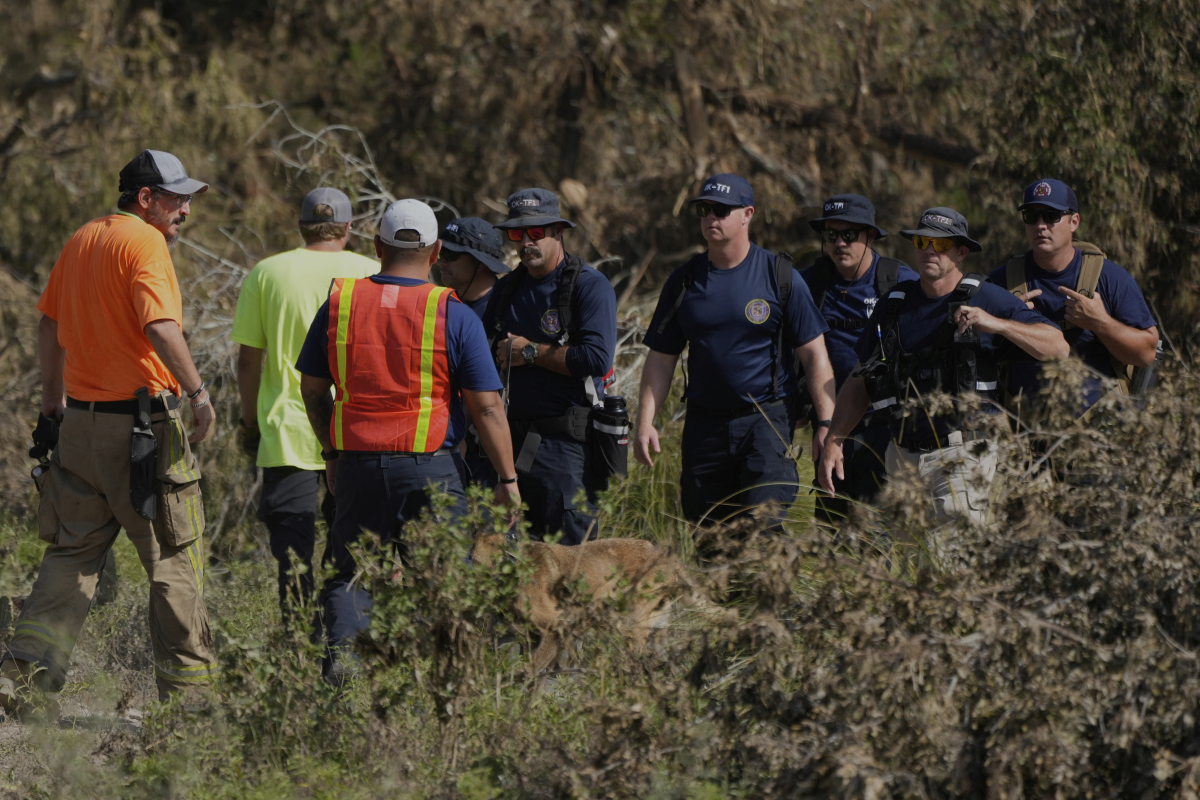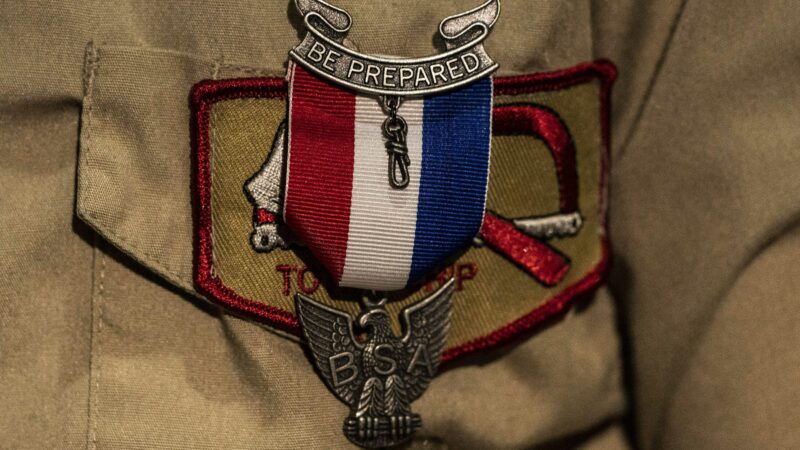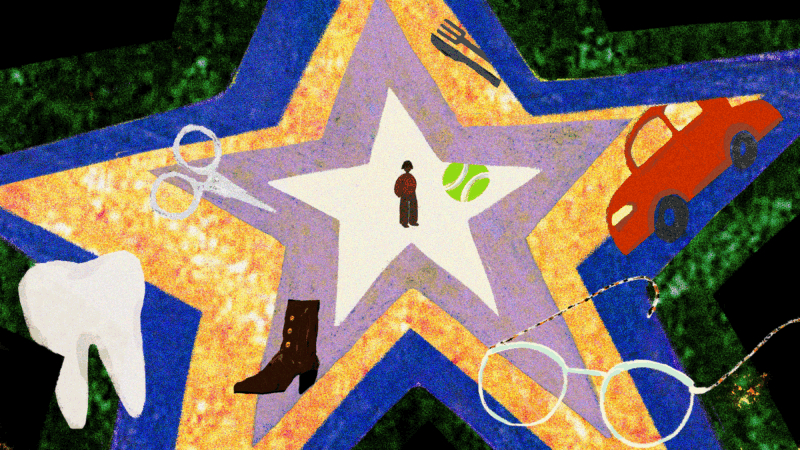Over 160 are missing after Texas floods. It could take months to find all of them
It could take weeks — or even months — to locate the more than 160 people believed to be missing after the deadly floods in Central Texas over the Fourth of July weekend, according to an Army lieutenant general who led the military response to Hurricane Katrina.
Officials have not found any survivors of the Texas Hill Country floods since July 4. Gov. Greg Abbott has pledged that search efforts will continue until every missing person is found.
But the thousands of officials and volunteers scouring the flood-affected zone are bound to run into challenges posed by the wreckage and the current environmental conditions, retired Army Lieutenant Gen. Russel L. Honoré told Morning Edition.
Honoré led the effort to bring military relief to New Orleans after Katrina in 2005 and has spent years working on disaster recovery operations.
Search efforts can be painstakingly slow because piled up debris has to be carefully removed, Honoré said.
“It’s not like bringing the excavator in and start moving debris. You’ve got to take it off a piece at a time and respect that that might be a person under the next piece of wood you’re picking up,” Honoré said. Rain that fell after the initial devastating flooding also slowed search efforts.
On Wednesday, the Kerville Police Department asked volunteers on social media to not use heavy equipment to tear down large pieces of debris “due to the possibility that a victim could be inside.”
Honoré spoke to NPR’s A Martínez about why search efforts after a disaster can be so challenging and his experience leading efforts after Katrina struck the Gulf Coast.
This interview has been edited for length and clarity.
A Martínez: General, based on what you’re seeing and hearing out of Texas, how challenging would the conditions be right now for these teams?
Honoré: They are working on the riverbanks and in the river in enormous heat. So it’s a big challenge because the debris that’s moved by the rapids in the water gets piled up. And that’s why they’re finding the remains that have been found in recent days. It’s very difficult work. And the people that are saving the day are the volunteers, some 2,000 volunteers on top of the state officials that are out there.

Martínez: As awful as this might be to even imagine, when it’s rushing water, it can take people. And in this case, if we’re looking for bodies, water can take them away from where they would normally be or where they would normally live, sometimes even miles. Could that be one of the reasons why the number of people still missing is so high days after the flooding?
Honoré: There have been reports of people being found 12 miles from where they were. And even further. So the water has a tremendous impact on where you look and when you look. It’s a very difficult task to accomplish. We’re blessed by the volunteers working with all the first responders, and they’re using every piece of technology available to include cadaver dogs, which makes them very exhausted in the heat and working around the water. So they’ve got a lot of boots on the ground now. And this is going to be long, arduous work to find all the remains. And the governor has committed to finding everyone. And that’s going to take weeks, if not months. We were still finding remains after Katrina, a month or two months after the flood.
Martínez: So, general, if teams do indeed find remains, what happens after that?
Honoré: Then they call in the emergency response people to come and document that. So they use body bags and then they go take them to a holding area. Then they have to identify who the person is. And that goes into, in some cases, using DNA. Taking DNA from the remains and posting that, and people that have relatives missing that have been asked to provide their DNA because it may not be recognizable. And we did that for several months after Katrina to identify remains.
This digital article was edited by Kelley Dickens. The radio story was edited by Mohamad ElBardicy.
Transcript:
A MARTÍNEZ, HOST:
With more than 160 people believed missing in Texas Hill Country, search teams continue to scour the area around the Guadalupe River. Texas officials say they haven’t found any survivors since the river overflowed on July 4. To help us understand the challenges facing these search teams, we’ve called on retired Lieutenant General Russel Honore. He led the effort to bring military relief to New Orleans after Hurricane Katrina, and he spent years working on disaster recovery operations. He joins us this morning from Baton Rouge, Louisiana. General, so what – based on what you’re seeing and hearing out of Texas, how challenging would the conditions be right now for these teams?
RUSSEL HONORE: Yeah, they’re working on the river banks and in the river in enormous heat. And up until two days ago, they still had the threat of – threats of flood warning because water was still falling. It was still raining. So it’s a big challenge because the debris that’s moved by the rapids in the water get piled up, and that’s where they’re finding the remains that have been found in recent days. It’s very difficult work. Work in very heated condition, and the people that are saving the day are the volunteers. There are some 2,000 volunteers on top of the state officials that are out there.
MARTÍNEZ: You know, General, in Los Angeles, I’ve been through my share of earthquakes, and one of the things that I know is that the debris and the damage is right there in front of you. There’s nothing in the way. How much does standing water complicate things?
HONORE: Well, it does. Because it piles the debris up, as you’ve seen on video and on newsreels, and that’s where they are finding the remains. And then some they can’t see because they may be in the mud, and they’re still having to fight that water and the banks are still wet. So to get the equipment in there and to get people in, you got to carefully remove each debris, right? It’s not like bringing the excavator in and start moving debris. You’ve got to take it off a piece at a time and respect that that might be a person under the next piece of wood you’re picking up. It’s very difficult work to accomplish. At the same time…
MARTÍNEZ: Yeah.
HONORE: …It has to be organized in a way to ensure that every spot get two checks. You do a visual check, and then you come back and you start removing the debris. And that’s over about a 60-kilometer area that’s got to be investigated, particularly those south of the camp where the majority of the people that are known to be come out of the…
MARTÍNEZ: Yeah.
HONORE: …Southern camps near Kirby.
MARTÍNEZ: Yeah. And as awful as this might be to even imagine, you know, when it’s rushing water, it can take people – and in this case, if we’re looking for bodies – away from where they would normally be or where they would normally live – sometimes even miles. Could that be one of the reasons why the number of people still missing is so high days after the flooding?
HONORE: Yeah, there have been reports of people being found 12 miles from…
MARTÍNEZ: Oh, wow.
HONORE: …Where they were, and even further. So the water has a tremendous impact on where you look and when you look. It’s just a very difficult task to accomplish. We’re, again, blessed by the volunteers working with all the first responders. And they’re using every piece of technology available to include cadaver dogs, which makes them very exhausted in the heat and working…
MARTÍNEZ: Yeah.
HONORE: …Around the water. So they’ve got a lot of boots on the ground now, and this is going to be long, arduous work to find all the remains. And the governor has committed to finding everyone.
MARTÍNEZ: Yeah.
HONORE: And that’s going to take weeks if not months. We were still finding remains after Katrina a month or two months after the…
MARTÍNEZ: Oh, wow.
HONORE: …Flood.
MARTÍNEZ: Wow. So, General, if teams do indeed find remains, what happens after that? What happens next?
HONORE: Then they call in the emergency response people to come and document that. So they’re using body bags, and then they go take them to a holding area where they’ll then have to identify who the person is. And that goes into, in some cases, using DNA. Taking DNA from the remains and posting that, and people that’ll have relative missing that have been asked to provide their DNA because it may not be recognizable. And we did that for several months after Katrina to identify remains.
MARTÍNEZ: That’s retired Lieutenant General Russel Honore, who led military relief operations after Hurricane Katrina. General, thank you for sharing your thoughts on this with us.
HONORE: Good day.
Pentagon shifts toward maintaining ties to Scouting
Months after NPR reported on the Pentagon's efforts to sever ties with Scouting America, efforts to maintain the partnership have new momentum
Why farmers in California are backing a giant solar farm
Many farmers have had to fallow land as a state law comes into effect limiting their access to water. There's now a push to develop some of that land… into solar farms.
‘Get back to integrity’: Oklahoma’s Kevin Stitt on Republicans after Trump
NPR's Steve Inskeep asks Oklahoma Gov. Kevin Stitt about his spat with President Trump, immigration and the future of the Republican Party.
Every business wants your review. What’s with the feedback frenzy?
Customers want to read reviews and businesses need reviews to attract customers. But the constant demand for reviews could be creating a feedback backlash, experts say.
Tariffs cost American shoppers. They’re unlikely to get that money back
After the Supreme Court declared the emergency tariffs illegal, the refund process will be messy and will go to businesses first.
Civil rights leaders say the racial progress Jesse Jackson fought for is under threat
Activists say racial progress won by the Rev. Jesse Jackson is under threat, as a new generation of leaders works to preserve hard-fought civil rights gains.






